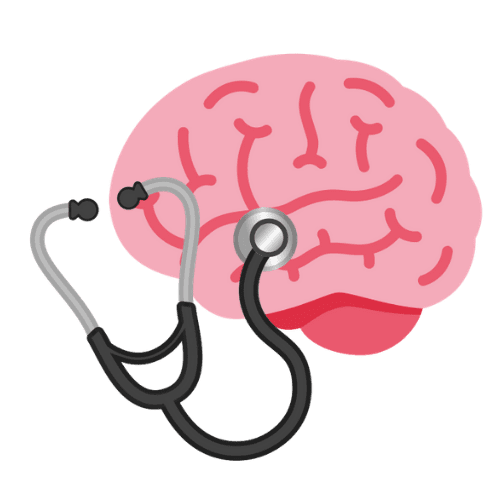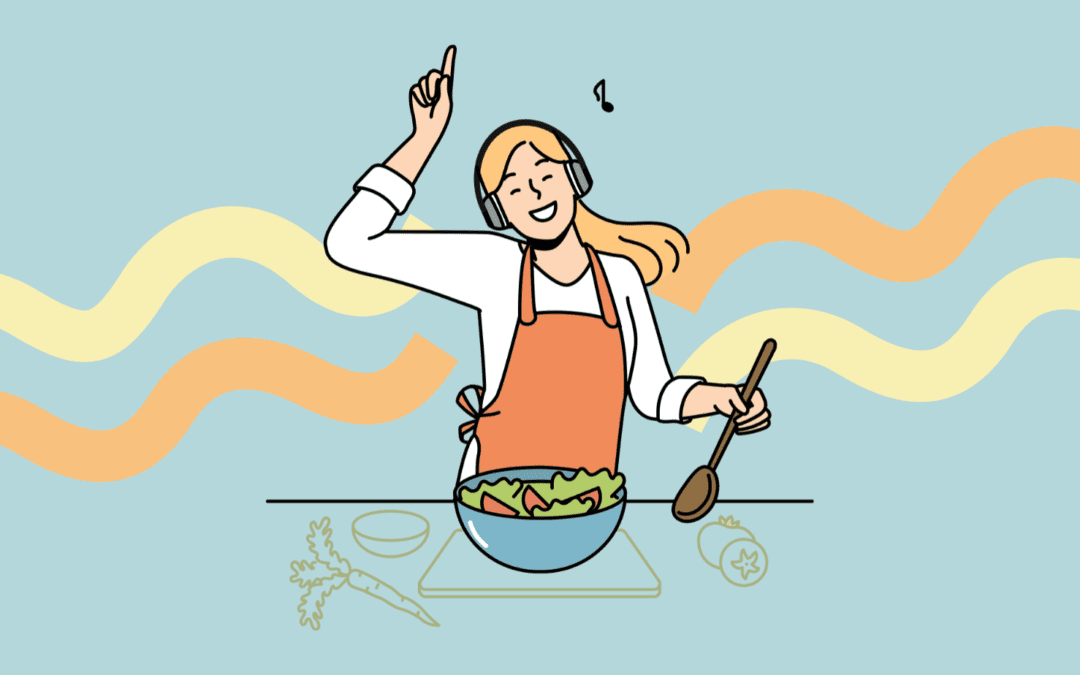Like a lot of people with ADHD, shopping and online purchases give me a much-needed dopamine boost. However, like a lot of students, money is usually very tight.
I was talking to a friend today about some of the online purchases we each regret the most. I admit that the tea strainers that sat in my car for 6 months maybe weren’t essential, but since I remembered to take the parcel into the house, I’ve definitely used them! However, the glass water bottle that I ended up clumsily dropping and smashing is definitely a lesson learned.
This conversation made me think about the things I’ve bought online that I’d recommend a million times over, especially those that have changed the game for my ADHD. I mention them occasionally in my posts, but as a big fan of the easy-to-read gift idea lists on Additude and Buzzfeed (it’s digital window shopping!), I decided to create my own ADHD-friendly Hall of Fame.
Here are some of the online purchases that have made a difference to my ‘adulting skills’, and made my life easier.
To find these products on Amazon, just click on the pictures 😊
1) Pill Organiser
I do take other medications besides those for my ADHD, but I’ve always struggled to manage even one or two pills each day without a visual way to organise them.
I’ve tried several different pill organisers over the years (seriously, I’m a connoisseur) and this style has been the best.
It has a separate part for each day, so you can take just one day’s tablets out with you if you want, but you can also take the whole week’s in the box too.
I especially like that it has a lid with a clasp on, so the individual day boxes don’t fall out in my bag and get lost. The lid also protects the writing on the boxes inside from wearing off, which has happened really quickly on individual pill organisers for me in the past (and has meant taking the wrong day’s tablets at times…)
I like this version of the boxes-inside-a-box style of organiser the most, because for each day you have sections for the morning, afternoon, evening, and a backup. This personally matches best with when I take my different medications, but when I’ve had a one-off extra prescription (eg antibiotics) it’s been nice to simply slot the bedtime doses into the backup section. I also like to use the backup section for ‘as needed’ doses of methylphenidate, which I might take depending on what I’m doing each day.
2) A To-Do Desk Planner
I feel like a fraud by essentially writing “get a planner” (who hasn’t heard that before from someone who doesn’t understand ADHD?!), but this is sort of different.
I use apps to organise things like my calendar and to-do lists, because I carry my phone literally everywhere and would lose a physical diary or planner very quickly… and have done this several times in the past!
However, I need to see information visually to process it and break it down, but also don’t want to get distracted by my phone. To solve this dilemma, I use a planner pad that I keep on my desk. On a Sunday night, I like to sit down and pick out tasks from the ‘master to-do’ list on my phone, and write them down on the planner, on the days I’m most likely to do them (emphasis on most likely – I’d love to get all my phone calls to the doctor, dentist and garage out the way on Monday, but realistically I’m less likely to avoid those tasks if I spread them out through the week!). I will also write any deadlines or ‘must not miss’ events for that week which relate to my tasks. These might be actual deadlines like ‘portfolio reflection due’, or things like ‘P in office’ – I tend to get more admin done when my fiance is at work…!
Different formats work for different people, and different weeks – so I use a different planner pad for placement-heavy weeks, to the one I use for weeks where I’m doing a lot of tutoring from home. Here are some different styles… even if they don’t work for your ADHD brain the same way they do for mine, the illusion of productivity is free dopamine, after all!
3) Magnetic Whiteboard
We have a ‘control centre’ whiteboard in our kitchen. I can’t take credit for the genius of this one – P put it up BC (before Catriona), and started using it during lockdown to write down which HelloFresh meals he was having each night with his housemate, and what they were going to do for exercise each day.
Since I moved in, with all of my chaos, it’s been adapted and is much more multifunctional now. We regularly write down on it:
- The meal plan for lunches and dinner
- Days that either of us are working from home (= able to take in parcels…!)
- Birthdays coming up that week
We, of course, also leave (usually silly) messages for each other. As the whiteboard is magnetic, we also have a variety of bits of paper on there – everything from wedding invites and business cards, to takeaway menus and the neighbour’s phone number.
It’s admittedly the wall-mounted version of a crap drawer, but it’s really handy to have a visual source for anything we both need to be aware of that week (today it’s the electrician’s phone number, and the loyalty card for the nearby car wash). We try to take off anything that isn’t needed at the end of the week.
4) Checklist Memo Board
I keep one of these in the kitchen also, and use it to keep track of the jobs we do every week – e.g. taking the bins out, putting a clothes wash on, ordering our online food shop. It’s a nice visual reminder of what household jobs have already been done, and which ones are still waiting to be done. It’s also a visual aid that both P and I can use, so we can see easily if the other person has done the job already. I could just write the to-do list on the whiteboard, but flicking the slider is admittedly quicker than finding a whiteboard pen – and ADHD brains will take the path of less-resistance.
5) Sunrise Alarm Clock
I usually have to get up early to go to the hospital, and I particularly struggle with this in the darker winter mornings. I have a Lumie alarm clock, but a friend has this cheaper lookalike, and it does exactly the same thing.
When it is so dark in the mornings, the room getting gently lighter helps me to feel less groggy waking up. However, I get the most benefit out of my alarm clock at bedtime, in ‘sunset’ mode. It gradually gets darker, giving a visual cue to my brain that it is time to go to sleep, and also gives me a timer for any bedtime procrastination – I can look at Twitter, but only until the light goes out.
6) Airtags
This item isn’t the cheapest, but Airtags seriously do more for my anxiety at times than medication!
I am incredibly prone to losing my belongings, and have genuinely had nightmares before about having to pay over £100 to replace lost car keys. Other things, such as my hospital and university ID cards, wouldn’t necessarily cost me loads to replace, but would be a big administrative pain.
I bought a set of 4 Airtags for just under £100 in September, and they quickly erased the ‘Which bag did I leave my lanyard in?’ paranoia, that would often hit me just as I was about the fall asleep. I felt ridiculous spending so much on items to track things like keys, but I am glad I paid the upfront cost, as replacing the items would cost more than the Airtags.
I can track the items on a map, but can also use the app to make the airtags beep, if they’re in range but I can’t see them. Additionally, if I lose one, by activating lost mode, they will alert anyone else with an iPhone who walks past them that they’re lost, and will also alert me to their location. They’ve already helped me find things in the house more times than I dare to count, but also helped me to find my car keys after they fell out of my pocket in the hospital corridors.
7) Noise-Cancelling Earplugs, Earbuds and Headphones
In my first ever post on this website, I said “I can’t sit near open windows, because even the sound of the breeze will distract me.”
Guess what? This is still true.
Background noise is a massive issue for me, and the slightest sound or noise can make it really difficult for me to concentrate. As a result, I’ve collected several things to help me block out auditory distractions over the years, and these are my favourites that I use for different situations.
Listening to Music?
Noise-Cancelling Headphones
I use these over-ear headphones when I want to listen to music while I work. They block outside sound really well, but the quality of the music is also superb. They’re a bit too good at cancelling the noise when I’m out for a walk, and can be a bit too warm on my head at the gym, so I also have…
Walking & Workouts?
Wireless Earbuds
These Anker earbuds are much cheaper than the headphones, and I use these day-to-day when I’m out and about. They don’t have as good sound quality for music, but they aren’t totally noise-cancelling, so I can still hear bikes coming up behind me in the park! They have a good battery life, and are small enough to keep in a pocket.
Studying?
Noise-Cancelling Earplugs
Earplugs like Loops have become crazy popular over the last year or so, and I can see why. I own a pair myself, and use them when I need to really concentrate – so even music would be distracting.
I like that they come in a little case that can be attached to a lanyard or set of keys, which means I always have them when I’m working in the library or a coffee shop.
Loops are certainly trendy and come in pretty colours, but I’m not convinced that they’re better than most cheaper silicone earplugs. However, I do have a hearing impairment, so the difference may be more noticeable to other people.
The postman has just been at the door with some parcels from online shopping (excellent timing!) so I’m going to leave this list here. If these ideas have been helpful to you (or could be at Christmas!), please let me know – it’s a different post to my usual, and I’m always interested to hear what visitors to Attention Deficit Doctor want to read.
Note to Readers
I feel like a 2010s-era YouTuber writing the word ‘disclaimer’, but for the sake of transparency – the items in this post have affiliate Amazon links. I would always link any items to show you exactly which one I bought myself, but by using an affiliate link, I may get a few pennies towards the running costs of this website. Genuinely – most purchases through an affiliate link earn up to 20p!
I love having this space to share and connect, and have always paid its upkeep costs by myself, but as it gets more popular, it costs me more to keep online – so any help is greatly appreciated!

















Excellent website / blog, Cartiona.
It’s great that you are a voice for other medical students and doctors with ADHD who are suffering. You give great positive and helpful advice and support ! Please keep blogging!